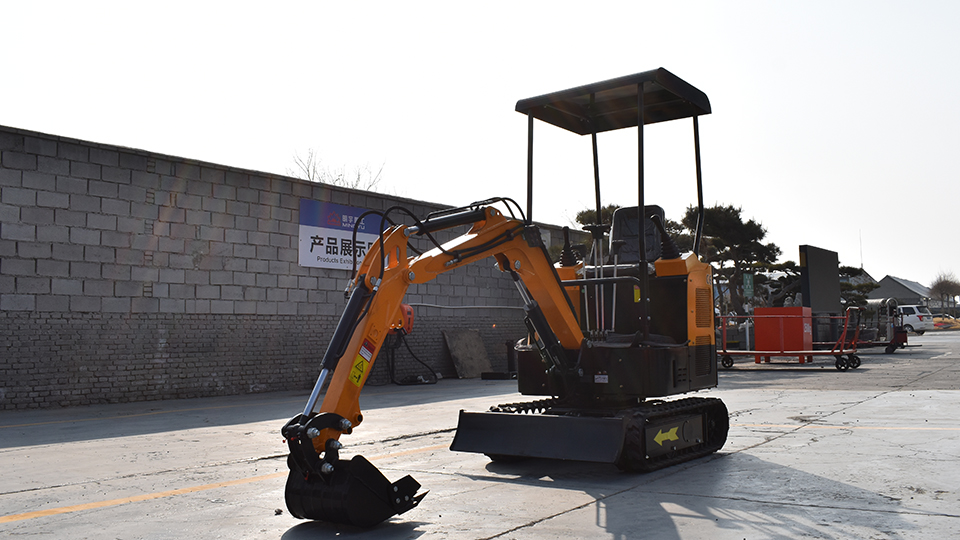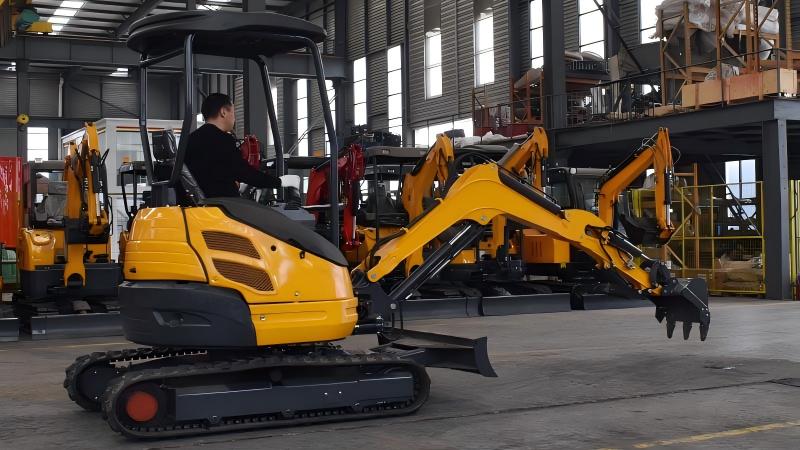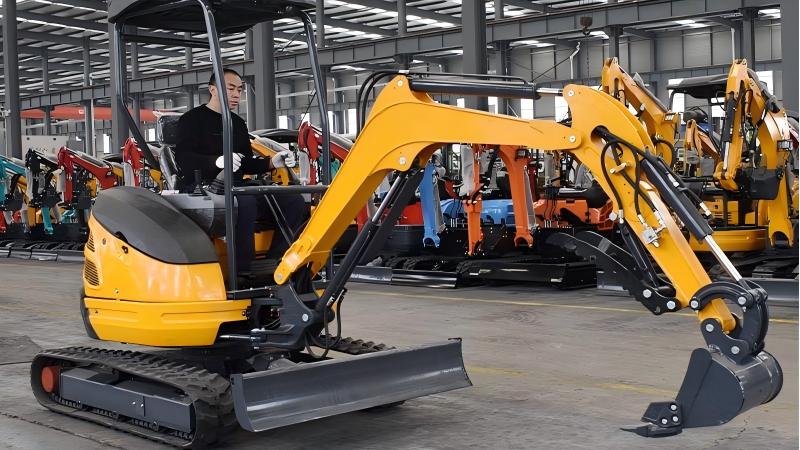Excavators are among the most robust and essential pieces of heavy machinery in the construction, mining, and landscaping industries. Their significant upfront cost makes their lifespan a critical consideration for owners and operators alike. While there's no single definitive answer, the average lifespan of an excavator is generally measured in operating hours and is influenced by a multitude of factors.
The Hour Meter: A Primary Metric
Unlike automobiles measured in miles, excavators' lifespans are typically gauged by their operating hours, recorded on an hour meter. This provides a more accurate reflection of the machine's actual working life, as idle time or travel time don't impose the same wear and tear as active digging or lifting.
On average, a well-maintained excavator can be expected to last between 7,000 and 10,000 operational hours. However, with diligent care and favorable conditions, some excavators, particularly from top-tier brands, can exceed this range, reaching 12,000, 15,000, or even 20,000 hours. Conversely, neglected machines or those subjected to consistently harsh conditions may see their useful life cut short, potentially failing before 7,000 hours.
It's also worth noting that the "average" lifespan can vary slightly based on the excavator's size and intended application:
Mini Excavators: Often used for lighter-duty tasks like landscaping or residential projects, mini excavators can sometimes boast a slightly longer operational life, typically around 10,000 hours or more.
Mid-Sized Excavators: These workhorses, commonly found on general construction sites, generally fall within the 8,000 to 10,000-hour range.
Large Excavators: Used for more intensive operations such as mining, quarrying, or large-scale civil engineering, these machines often operate under higher stress, and their lifespan might be closer to 6,000 to 8,000 hours, though still highly dependent on maintenance.

Factors Influencing Excavator Lifespan
The broad range in excavator lifespans highlights that "average" is just a guideline. Several critical factors significantly influence how long an excavator will truly last:
Maintenance and Service Schedule: This is arguably the most crucial determinant. Adhering strictly to the manufacturer's recommended maintenance schedule – including regular oil and filter changes (engine, hydraulic, fuel, air), lubrication of pivot points, inspection of hydraulic hoses, and routine checks of all fluid levels – can dramatically extend an excavator's life. Neglecting these preventative measures is a sure way to accelerate wear and tear, leading to premature component failure and costly repairs.
Proactive vs. Reactive: Preventive maintenance, which involves scheduled checks and replacements, is far more effective and cost-efficient than reactive maintenance, which only addresses issues after a breakdown occurs.
Operating Conditions and Environment: The environment in which an excavator operates plays a significant role.
Harsh Environments: Machines used in abrasive conditions (e.g., quarrying, demolition with a hydraulic breaker), extreme temperatures (very hot or freezing), or dusty environments will experience more wear and tear. Dust and debris can infiltrate sensitive components, while extreme temperatures can degrade fluids and components faster.
Terrain: Operating on uneven or rocky terrain puts additional stress on the undercarriage, tracks, and hydraulic system.
Weather Exposure: Prolonged exposure to rain, snow, and direct sunlight can lead to corrosion, rust, and material degradation. Proper storage, such as under cover or indoors, can mitigate these effects.
Usage Intensity and Application:
Heavy-Duty vs. Light-Duty: An excavator consistently working at its maximum capacity, performing demanding tasks like breaking concrete or deep excavation in hard rock, will naturally experience more wear than one used for lighter tasks like grading or digging in soft soil.
Attachment Use: Certain attachments, like hydraulic hammers, impose significant stress and vibration on the machine, which can accelerate wear on the boom, stick, and hydraulic system.
Operator Skill and Habits: A skilled and conscientious operator can significantly extend an excavator's life.
Smooth Operation: Operators who avoid abrupt movements, excessive swinging, "slamming" cylinders to the end of their stroke, or overloading the machine minimize unnecessary stress on mechanical and hydraulic components.
Daily Inspections: A good operator performs a thorough walk-around inspection before and after each shift, identifying minor issues before they escalate into major problems.
Proper Attachment Usage: Using the correct attachment for the job and operating it within its design parameters also contributes to longevity.
Quality of Components and Original Build: The initial quality of the excavator itself, including the materials used in its construction and the precision of its manufacturing, fundamentally impacts its durability. Reputable brands known for their robust engineering and high-quality components often yield excavators with longer lifespans. Investing in genuine OEM (Original Equipment Manufacturer) replacement parts when repairs are needed also contributes to maintaining the machine's original integrity and performance.
Under-carriage Maintenance: The undercarriage is one of the most expensive components to repair or replace on an excavator. Regular cleaning to remove mud, rocks, and debris, along with proper track tensioning and inspection for worn sprockets, rollers, and idlers, is vital for maximizing the undercarriage's life and, by extension, the entire machine.
Extending Your Excavator's Lifespan
While the average lifespan provides a benchmark, actively working to extend your excavator's life translates directly into a better return on investment and reduced downtime. Key strategies include:
Strict Adherence to Manufacturer's Manual: This document is the bible for your specific machine, outlining all recommended service intervals, fluid types, and operational guidelines.
Regular Fluid and Filter Changes: Crucial for engine health, hydraulic system efficiency, and overall performance.
Daily Walk-Around Inspections: A quick visual check can catch leaks, loose bolts, unusual wear, or damaged components before they cause significant issues.
Proper Lubrication: Greasing all pivot points regularly reduces friction and prevents premature wear on pins and bushings.
Undercarriage Care: Keep it clean, inspect for damage, and maintain correct track tension.
Operator Training: Ensure all operators are well-trained, understand the machine's capabilities and limitations, and practice smooth, efficient operation.
Use Quality Parts and Fluids: Opt for OEM or high-quality aftermarket parts and recommended fluids to maintain optimal performance and longevity.
Cleanliness: Regularly cleaning the exterior and interior of the machine prevents dirt and debris from accumulating and causing wear or corrosion.
Proper Storage: When not in use, park the excavator on level ground and protect it from harsh weather conditions.
Conclusion
The average lifespan of an excavator, typically cited as 7,000 to 10,000 hours, serves as a useful benchmark. However, the true longevity of these powerful machines is a testament to the proactive measures taken by their owners and operators. By committing to rigorous maintenance schedules, employing skilled operators, understanding the impact of operating conditions, and investing in quality components, an excavator can reliably serve a business for many years, significantly exceeding the average and delivering a strong return on a substantial investment.
Post time:Sep-25-2020


